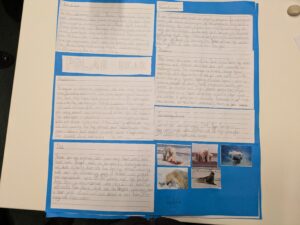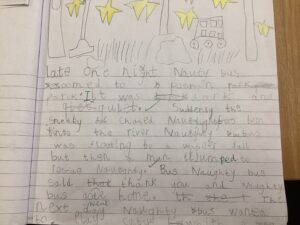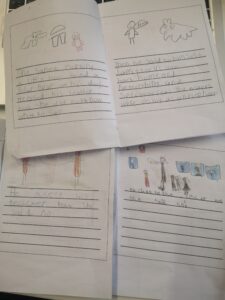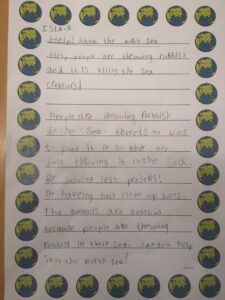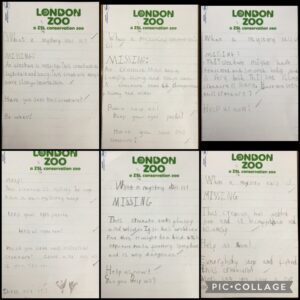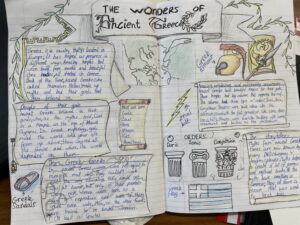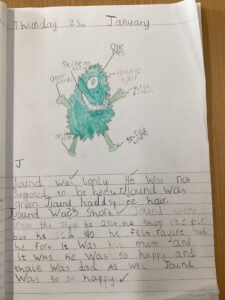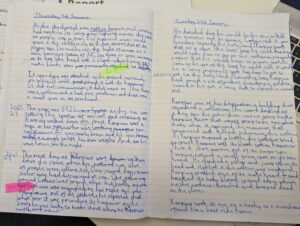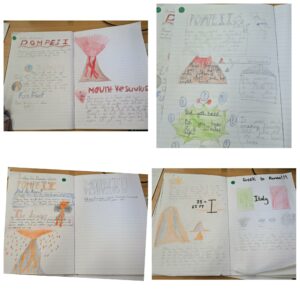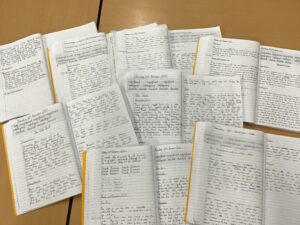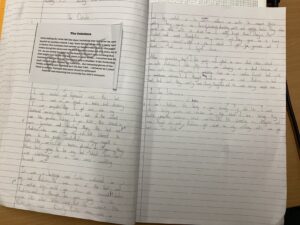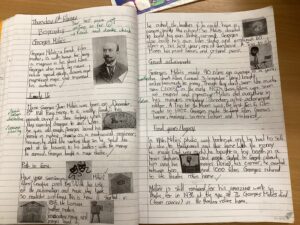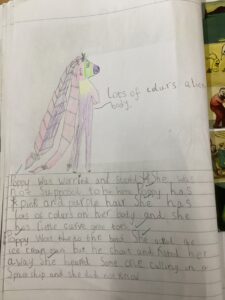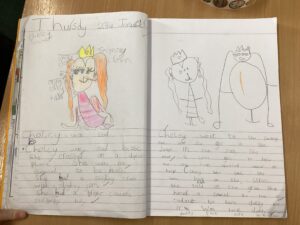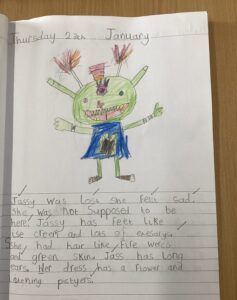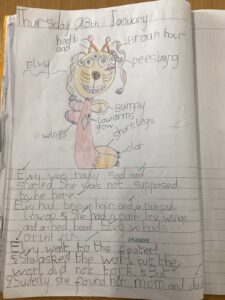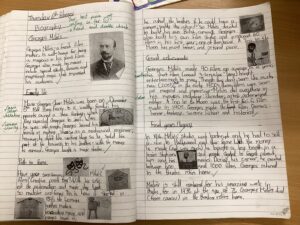Writing at Northstead Community Primary School
Writing Leaders – Erica Linsdell and Lucy Palmer
At Northstead, we are passionate about developing confident, creative, and capable writers. Our writing curriculum is shaped using high-quality texts and expert guidance from The Literacy Tree, which helps us deliver rich, engaging learning experiences that inspire children to write with purpose and imagination.
Through carefully chosen books, pupils explore a wide range of genres, voices, and perspectives, enabling them to build strong vocabulary, sentence structure, and storytelling skills. Aligned with our core values of Excellence, Opportunities, and Responsibility, our writing curriculum encourages children to take pride in their work, write for real audiences, and continually aim high.
From the earliest stages of mark-making to crafting well-structured narratives and persuasive arguments, we support every child to develop their unique voice and become thoughtful, reflective communicators.
Writing – A Parent’s Guide
A Book-Led Approach
We use carefully chosen children’s books as the foundation of our English curriculum. These texts are selected for their literary quality, depth of ideas, and power to spark imagination. By engaging with these stories, children develop a love for reading and the skills to become expressive and purposeful writers.
How Writing Is Taught
Each half term, children complete:
- Writing units (called Writing Roots) (Other writing takes place within the reading curriculum and across the curriculum)
- Spelling units (called Spelling Seeds)
Writing Roots lessons:
- Focus on specific genres and writing purposes
- Include opportunities for independent writing and teacher modelling
Spelling Seeds lessons:
- Support vocabulary and spelling development using the same core texts
Spelling and Vocabulary
Spelling is taught through exploration and context, helping children understand and apply spelling patterns in real writing. Lessons are structured into:
- Investigate
- Practice
- Apply
Developing Independence and High Standards
Throughout the year, children are encouraged to:
- Take pride in the presentation of their work
- Apply success criteria and targets during independent writing
- Edit and improve their work following teacher feedback
Our teachers provide regular modelled writing to show how great writing is created, and every child is guided to achieve their personal best, with extra support and scaffolds given where needed.
How Writing is Assessed
- Teachers assess children’s writing regularly against National Curriculum objectives
- Formal writing assessments are submitted each term
- We also take part in ‘No More Marking’ comparative judgement tasks across the school year
These assessments help us track progress and plan the right support to keep every child moving forward.
Writing in EYFS (Reception)
In Reception, writing begins with immersive storytelling, oracy, and language development. Children take part in activities based on the Tales Toolkit model and begin to record their ideas as their phonics skills grow through the Read, Write, Inc. programme.
In the summer term, children are gradually introduced to Literacy Tree writing lessons to help prepare for Year 1.
Launching New Learning
Each writing unit begins with an exciting ‘hook’ or launch activity to capture children’s imagination and introduce the new text. These experiences help children connect emotionally to the story and develop meaningful ideas for writing.
Supporting Writing at Home
You can help at home by:
- Reading regularly with your child and discussing stories
- Encouraging them to write for real-life purposes (e.g. shopping lists, letters)
- Practising weekly spellings and high-frequency words
- Supporting neat handwriting and sentence construction
Documents
